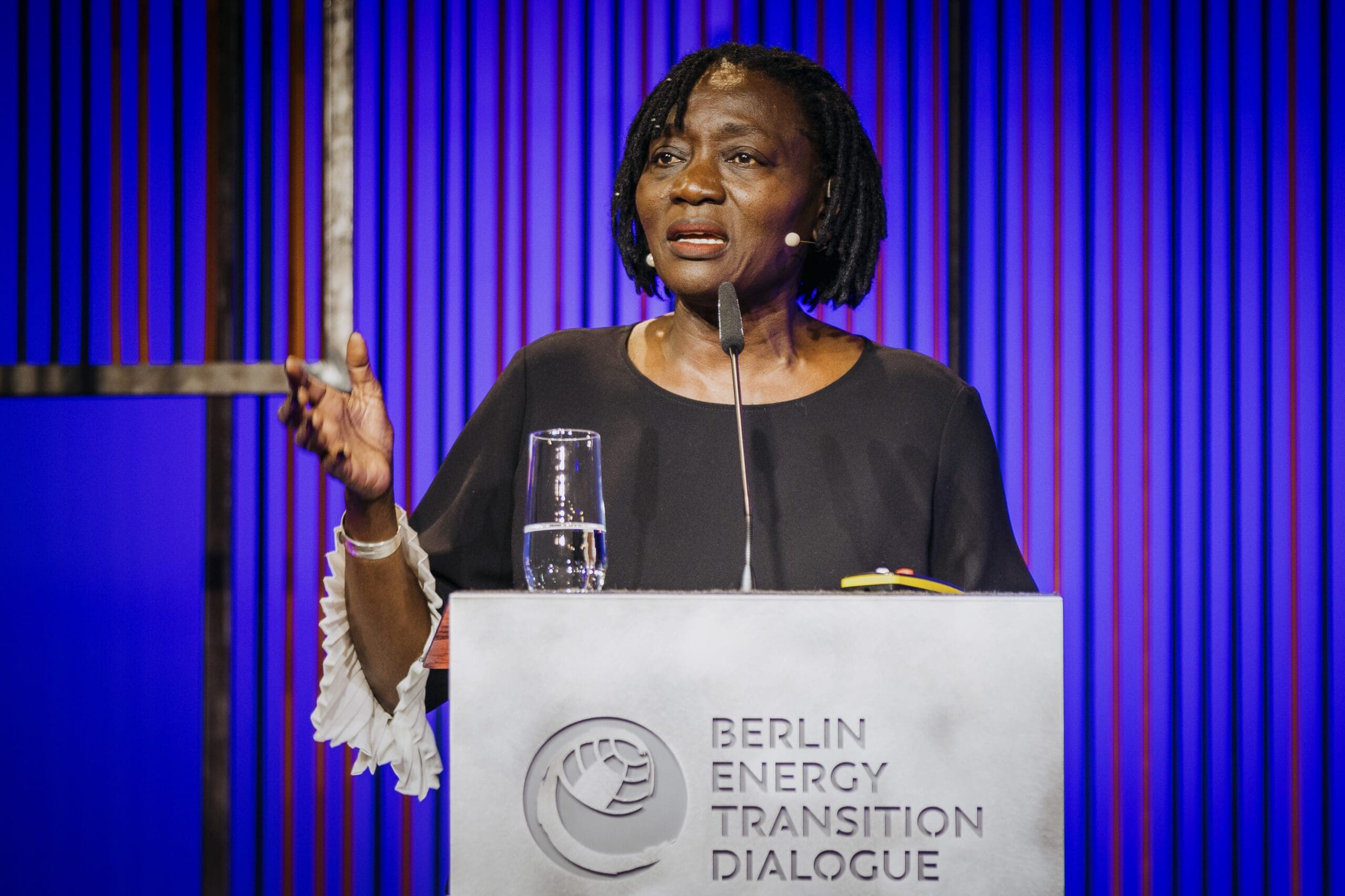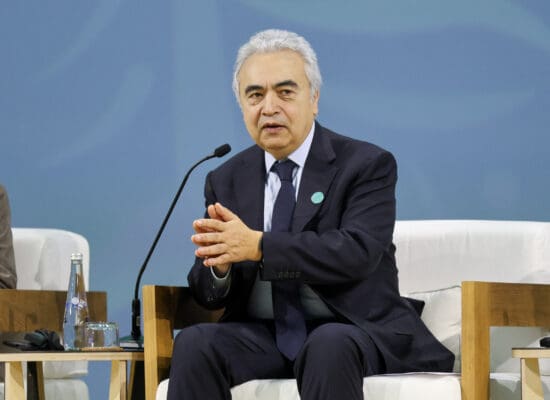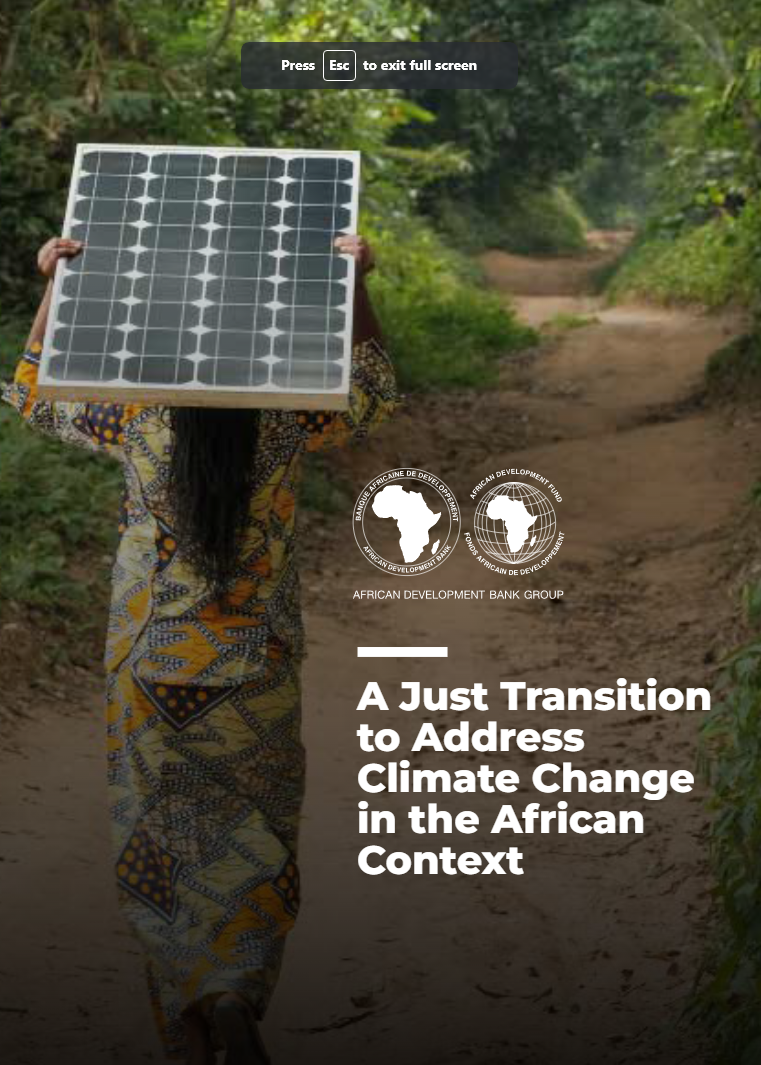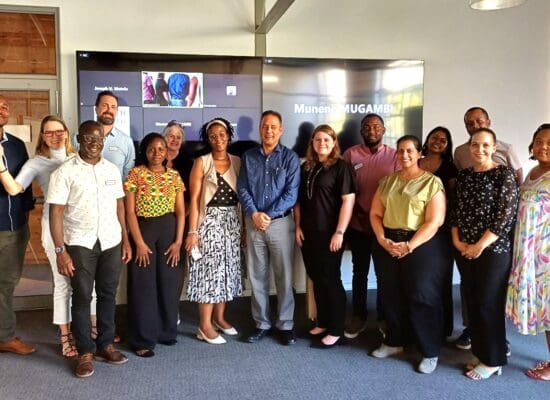
The top-line issue at this year’s Berlin Energy Transition Dialogue (BETD) was the goal of tripling renewable energy by 2030, including how governments move from commitment to this goal to action to achieve it. This was certainly a major focus of day one and a recurring thread throughout most of the panel discussions and many of the side events.
However, when it came to how to reach this goal, an underlying current emerged that was more about process than technical achievement. The BETD featured several prominent speakers from the Global South, including Auma Obama, renowned Kenyan-British academic and half-sister of the former U.S. president, who provided a fiery keynote speech on the need to re-examine our partnerships to see if they benefited all “partners” equally.
We also heard from Rose Paul, a member of the Mi’kmaq First Nation in Canada who reminded attendees that dialogue must be a two-way conversation and that for energy transitions to be just, they must incorporate Indigenous knowledge and solutions. “Listen, don’t just talk” was a salient soundbite from a session focused on consulting with those who are impacted by, and who can contribute hugely towards, the clean energy transition.
With these words in mind, the focus for this process of moving from fossil fuels to renewables, winding down the former and ramping up the latter, quickly coalesced around the topic of justice. Respect, inclusion, recognition, participation, and listening to those most affected came up again and again. Perhaps with increased urgency this year, the theme of just transition as the vehicle for achieving these goals through energy transition processes continued, tied to calls for the social impacts —both opportunities and risks—of renewable growth to be considered.
By enshrining a focus on the social implications of energy transition in the next round of NDCs, the issues of respect, inclusion, and justice raised by speakers at the BETD will be explicitly referenced in writing.
Prompted by the move towards the next round of nationally determined contributions (NDCs) under the Paris Agreement, there was a good deal of discussion on what these climate commitments should include, with a greater focus on the process of energy transition than simply the goals and policies that look to achieve it.
By enshrining a focus on the social implications of energy transition in the next round of NDCs, the issues of respect, inclusion, and justice raised by speakers at the BETD will be explicitly referenced in writing.
Additionally, in recognising that just transition is a tripartite process, with workers and employers engaged hand-in-hand with governments, the inclusion of direct references to just transition in NDC commitments would send an important signal to workers, industry, and private investors that they will have a productive role to play in policy design and implementation when it comes to achieving critical goals like tripling renewables.
Finally, NDCs are about ambition and implementation. The economic and environmental goals and indicators of energy transition—including investment targets for public and private funding and greenhouse gas (GHG) targets to limit the impacts of climate change—are well known, but the social implications and goals of transition should also be referenced in these documents on an equal footing. This shows workers that there is a commitment to not just “new” jobs but “good and decent” jobs in emerging sectors, alongside support for those in sectors (such as the fossil fuel industry) facing pressures under a clean energy transition.
In other words, “social licence,” as Sharan Burrow, Principal Adviser at Just Transition Solutions and former General Secretary of the International Trade Union Confederation, put it in her virtual keynote address, “is vital to success, and where it is ignored, resistance and social unrest will prevail.”
All in all, it was positive to see BETD 2024 tackle both the broad global goal of clean energy transition with a focus on renewables, and a frank and honest discussion about how we achieve justice through transition. We often say we need less talk and more action, but BETD 2024 also indicated that we need more listening as we proceed with that much-needed action.
Stay Informed and Engaged
Subscribe to the Just Energy Transition in Coal Regions Knowledge Hub Newsletter
Receive updates on just energy transition news, insights, knowledge, and events directly in your inbox.


